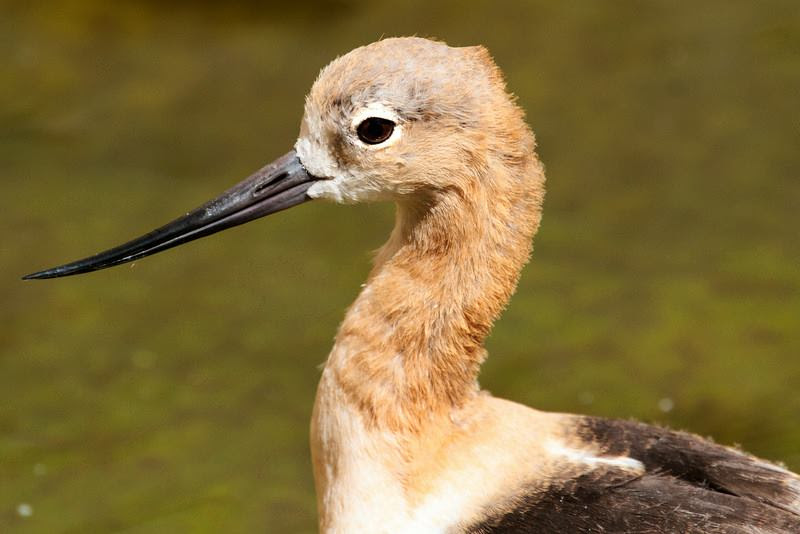The Port of Long Beach (POLB) announced Tuesday that it is expanding its partnership with International Bird Rescue (IBR), a global expert in oil-related wildlife emergencies and aquatic bird care. The partnership was made official during an animal cruelty case involving a pelican with a slashed pouch that put Southern California in the headlines earlier this year.
This year alone, the Port has committed a total of $20,000 to support International Bird Rescue’s mission to care for injured wildlife affected by urban environments, such as those in Long Beach and neighboring communities.
The Port and IBR will collaborate in an effort to highlight the often-overlooked species that live in local marine environments through a regular “sponsored patient” campaign. Each sponsored bird will help bring attention to the biodiversity of local ecosystems and will be highlighted on POLB and IBR social media.
 The first official sponsored bird is an American avocet [pictured left], a species of wading birds that is federally protected and can be seen “sweeping” their upturned bills through shallow waters for food. The sponsored bird’s nest had been recently abandoned because of human activity and is being raised among other wading birds and shorebirds at IBR.
The first official sponsored bird is an American avocet [pictured left], a species of wading birds that is federally protected and can be seen “sweeping” their upturned bills through shallow waters for food. The sponsored bird’s nest had been recently abandoned because of human activity and is being raised among other wading birds and shorebirds at IBR.
The Port has worked to maintain area marine habitat and to monitor local populations of bird species through its Green Port Policy, supporting habitat restoration at Bolsa Chica Ecological Reserve and other local wetlands. These at-risk marine habitats serve as key stopover points for birds migrating along the Pacific Flyway, which stretches from Alaska to Argentina.
The partnership between POLB and IBR began unofficially this spring when Pink, an adult California brown pelican, was found mutilated, his throat poach severed from ear to ear by an unknown perpetrator. The lucky pelican, nicknamed Pink for the temporary leg band worn during its stay at IBR’s wildlife center in San Pedro, received $5,000 from the Port for reconstructive surgery. According to IBR, Pink was released in early June.
“Many of the bird species that call the Long Beach area home also are some of our most common patients,” Barbara Callahan, interim executive director of International Bird Rescue, said in a statement. “We see a natural connection between our mission to protect birds from human activity and the Port of Long Beach’s commitment to local wildlife and the habitats they depend on.”
For more information on the sponsored American avocet, click here. For more information on the Port’s Green Port Policy, visit www.polb.com/environment. For more on the IBR, visit www.bird-rescue.org.

